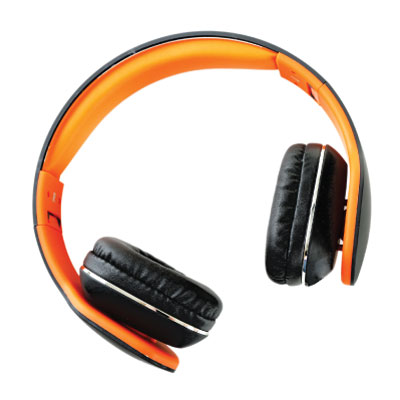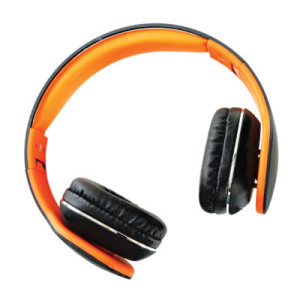
People with disabilities from culturally diverse communities sharing practical tips about living well. Listen to our content sorted by language at speakmylanguage.com.au The Speak My Language (Disability) program involves people with disabilities from culturally and linguistically diverse backgrounds, and other guest speakers, sharing practical tips and resources to support living well with a disability. Speak My Language (Disability) is funded by Commonwealth Department of Social Services and is proudly delivered via an historic partnership between all State and Territory Ethnic and Multicultural Communities‘ Councils across Australia.
Episodes

Monday Aug 29, 2022
Monday Aug 29, 2022
Isabel Osuna vive desde pequeña con una discapacidad que desarrolló en Venezuela en un accidente inesperado que nunca imaginó cambiaría el curso de su vida y forjaría un profundo compromiso con la educación y la capacitación laboral en Australia.
Isabel está convencida de que todas las personas tienen la capacidad de ampliar sus conocimientos, independientemente de sus diferencias.
“Si entrenamos a las personas para estudiar o para realizar un trabajo, todo es posible. Porque la educación es lo que te permite salir adelante. Entre más sepa esa persona, más oportunidades tendrá y más cosas podrá realizar,” afirma con certeza.
En su más reciente emprendimiento, Isabel se ha enfocado en ayudar a personas con discapacidades de comunidades multiculturales, ya que es un tema con el que está familiarizada desde temprana edad, cuando el obstetra que la trajo al mundo le fracturó su mandíbula accidentalmente durante una intervención con fórceps.
Ese incidente le generó una anomalía y su mandíbula comenzó a crecer dentro de su cráneo afectando sus glóbulos oculares, en particular su ojo derecho. Años mas tarde ese ojo terminó dañado y con solo el cinco por ciento de visión.
Marginada por menores de su edad, Isabel comenzó a notar que muchos niños con síndrome de Down corrían por las calles de su barrio en Venezuela como si estuvieran perdidos.
Ella recuerda que le preguntó a su madre por qué esos niños no iban a la escuela, a lo que su madre respondió: “porque son diferentes”.
Fue entonces que a Isabel se le ocurrió la idea de armar una escuela en el patio de su casa e invitar a esos niños a jugar a la maestra.
Isabel cuenta que los niños comenzaron a visitarla y con apenas ocho años ella logró enseñarles el abecedario y a leer sus libros.
La pequeña niña venezolana descubrió algo que jamás había experimentado.
"Ellos no me juzgaban porque no me veían como una persona diferente. Y ser diferente me ayudó a entender a otras personas que eran diferentes y a ayudarlas también."
Durante sus últimos años de la escuela primaria, la deformación de la cara de Isabel fue completamente corregida con una operación de mandíbula. Pero la recuperación después de la cirugía tomó un año, por lo que tuvo que ausentarse del colegio y seguir sus estudios en casa.
La tarea de enseñar y compartir conocimiento que Isabel comenzó a los ocho años en Venezuela, la continuó años más tarde en su nuevo hogar, Australia, en donde desde hace muchos años trabaja ayudando a personas con discapacidades en comunidades multiculturales.
La labor de Isabel consiste en orientar y acercar herramientas a estas personas para que puedan lograr sus metas laborales y académicas, y en el proceso aprendan a cambiar actitudes y estigmas.
“Así como pasaba cuando yo era pequeña, que los niños no iban a la escuela porque tenían síndrome de Down, las personas cuyo primer idioma no es el inglés o que no entienden los sistemas piensan que aquí es igual que en sus países de origen. Entonces, mantienen a los niños en casa y no los llevan a la escuela”, expone.
Isabel trabaja con esas comunidades brindando información sobre los servicios y herramientas disponibles para superar sus situaciones laborales o educacionales.
Ella está convencida de que la educación y el conocimiento empoderan a las personas y refuerzan su capacidad de vivir de manera independiente, aunque tenga una discapacidad.
"Todas las personas tenemos la capacidad de aprender algo. Y si una persona quiere trabajar existen las posibilidades."
About the guest speaker
(
Isabel Osuna has lived since she was a child with a disability that she developed in Venezuela in an unexpected accident that she never imagined would change the course of her life and forge a deep commitment to education and job training in Australia.
Isabel is convinced that all people have the ability to expand their knowledge, regardless of their differences. “If we train people to study or to do a job, everything is possible. Because education is what allows you to get ahead. The more that person knows, the more opportunities they will have and the more things they will be able to accomplish, ”she affirms with certainty.
In her most recent venture, Isabel has focused on helping people with disabilities from multicultural communities, a topic she is familiar with from an early age, when the obstetrician who brought her into the world accidentally fractured her jaw during an operation. That incident gave her an anomaly and her jaw began to grow inside her skull, impacting her right eye. Years later that eye ended up damaged and with only five percent of vision.
Bullied by children her age, Isabel began to notice that many children with Down syndrome were running through the streets of her neighbourhood in Venezuela as if they were lost.
She remembers that she asked her mother why those children did not go to school, to which her mother replied: “because they are different”.
It was then that Isabel came up with the idea of setting up a school in the patio of her house and inviting those children to play teacher.
Isabel says that the children began to visit her and, at just eight years old, she managed to teach them the alphabet and to read her books.
The little Venezuelan girl discovered something that she had never experienced, "they didn't judge me because they didn't see me as a different person. And being different helped me understand other people who were different and help them too."
During her last years of elementary school, Isabel's facial deformity was completely corrected with a jaw operation. But recovery after the surgery took a year, so she had to take time off school and continue her studies at home.
The task of teaching and sharing knowledge that Isabel began at the age of eight in Venezuela continued years later in her new home, Australia, where she has been working for many years helping people with disabilities in multicultural communities.
Isabel's job is to guide and bring tools to people with disabilities from multicultural backgrounds so that they can achieve their work and academic goals, and in the process learn to change attitudes and stigmas.
“Just as it happened when I was little, that children did not go to school because they had Down syndrome, people whose first language is not English or who do not understand the systems think that it is the same here as in their countries of origin. So, they keep the children at home and do not take them to school,” she explains.
Isabel works with these communities, providing information about the services and tools available to overcome their work or educational situations.
She is convinced that education and knowledge empower people and strengthen their ability to live independently, even with a disability.
"All people have the ability to learn something. And if a person wants to work there are possibilities."
About the guest speaker
)

No comments yet. Be the first to say something!